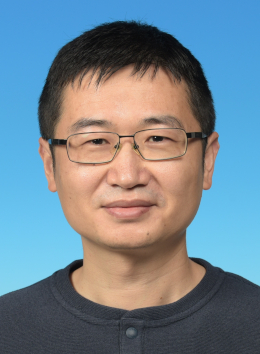Jun ZHANG 張軍
Jun ZHANG 張軍 Details

Tel
Office
Links
Google Scholar
Scopus ID
Contact Information
Tel
Office
Links
Google Scholar
Scopus ID
Research Interests
Research Area
Biography
Jun Zhang received the BEng degree in Electronic Engineering from the University of Science and Technology of China (USTC) in 2004, the MPhil degree in Information Engineering from the Chinese University of Hong Kong (CUHK) in 2006, and the PhD degree in Electrical and Computer Engineering from the University of Texas at Austin in 2009. He is an Associate Professor in the Department of Electronic and Computer Engineering at the Hong Kong University of Science and Technology (HKUST). Previously he was an Assistant Professor at the Hong Kong Polytechnic University (from 2019 to 2021). His research interests include wireless communications and networking, mobile edge computing and edge AI, and cooperative AI.
Dr. Zhang co-authored the books “Fundamentals of LTE” (Prentice-Hall, 2010), “Stochastic Geometry Analysis of Multi-Antenna Wireless Networks” (Springer, 2019), and “Low-overhead Communications in IoT Networks – Structured Signal Processing Approaches” (Springer, 2020). He is an Editor of IEEE Transactions on Communications, and was an editor of IEEE Transactions on Wireless Communications (2015-2020). He served as a MAC track co-chair for IEEE Wireless Communications and Networking Conference (WCNC) 2011 and a wireless communications symposium co-chair of IEEE International Conference on Communications (ICC) 2021.
Dr. Zhang is a co-recipient of the 2021 Best Survey Paper Award of the IEEE Communications Society, the 2019 IEEE Communications Society & Information Theory Society Joint Paper Award, the 2016 Marconi Prize Paper Award in Wireless Communications (the best paper award of IEEE Transactions on Wireless Communications), and the 2014 Best Paper Award for the EURASIP Journal on Advances in Signal Processing. Two papers he co-authored received the Young Author Best Paper Award of the IEEE Signal Processing Society in 2016 and 2018, respectively. He also received the 2016 IEEE ComSoc Asia-Pacific Best Young Researcher Award.
Research Interests
Research Area
Biography
Jun Zhang received the BEng degree in Electronic Engineering from the University of Science and Technology of China (USTC) in 2004, the MPhil degree in Information Engineering from the Chinese University of Hong Kong (CUHK) in 2006, and the PhD degree in Electrical and Computer Engineering from the University of Texas at Austin in 2009. He is an Associate Professor in the Department of Electronic and Computer Engineering at the Hong Kong University of Science and Technology (HKUST). Previously he was an Assistant Professor at the Hong Kong Polytechnic University (from 2019 to 2021). His research interests include wireless communications and networking, mobile edge computing and edge AI, and cooperative AI.
Dr. Zhang co-authored the books “Fundamentals of LTE” (Prentice-Hall, 2010), “Stochastic Geometry Analysis of Multi-Antenna Wireless Networks” (Springer, 2019), and “Low-overhead Communications in IoT Networks – Structured Signal Processing Approaches” (Springer, 2020). He is an Editor of IEEE Transactions on Communications, and was an editor of IEEE Transactions on Wireless Communications (2015-2020). He served as a MAC track co-chair for IEEE Wireless Communications and Networking Conference (WCNC) 2011 and a wireless communications symposium co-chair of IEEE International Conference on Communications (ICC) 2021.
Dr. Zhang is a co-recipient of the 2021 Best Survey Paper Award of the IEEE Communications Society, the 2019 IEEE Communications Society & Information Theory Society Joint Paper Award, the 2016 Marconi Prize Paper Award in Wireless Communications (the best paper award of IEEE Transactions on Wireless Communications), and the 2014 Best Paper Award for the EURASIP Journal on Advances in Signal Processing. Two papers he co-authored received the Young Author Best Paper Award of the IEEE Signal Processing Society in 2016 and 2018, respectively. He also received the 2016 IEEE ComSoc Asia-Pacific Best Young Researcher Award.
